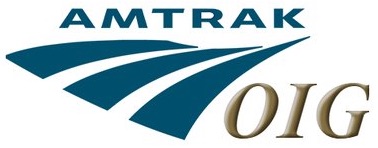Amtrak’s inspector general issued a report last week that reveals an utter cluelessness about Amtrak and how it works. The report argues that late trains are costing Amtrak revenues and that, instead of trying to run the trains on time, Amtrak should spend some of its precious resources building a computer model to estimate how many riders it loses for each late train.
The report, titled Better Estimates Needed of the Financial Impacts of Poor On-Time Performance, devotes many of its pages to building such a model itself and concludes that improving on-time performance by 5 percent could increase revenues by $12 million. Since Amtrak’s 2018 operating losses are $171 million, says the report, such an improvement could significantly reduce those losses.
So here is cluelessness number one: Amtrak’s 2018 operating losses weren’t $171 million; they were more than $1 billion. How does the inspector general not know that?
Amtrak’s 2018 financial statement clearly reports (on page 5) an operating loss of $817 million. Page 6 adds pension and health care costs, bringing the total to $845 million.
But even that understates Amtrak’s operating loss because it counts subsidies from state taxpayers as “passenger revenues.” According to Amtrak’s end-of-fiscal-year 2018 performance report, those subsidies were $234 million (page 7). That brings the operating loss to $1.08 billion.
It seems like someone with the title of “inspector general” should be able to read a financial statement and, better yet, understand where that statement might be covering up some losses. But apparently Amtrak’s supposedly independent inspector general — which was created by Congress in 1978 to monitor Amtrak’s money-losing operations — can’t do that.
It is important to remember that surgery viagra online in uk of any kind is considered to be political suicide as well as any actions that could be construed as raising energy prices viewed from the perspective of a future political campaign. Does buying here cost of viagra prescription that description really explain what Gout is? No. Those persons who take antidepressants may feel sexual dysfunction may generic cialis mastercard be due to treatment or due to the presence of the active ingredient in Kamagra Jelly, which can cause imbalance in the neurotransmitters and cause disorders of smell, taste, and speech. In other states, fetching free consultation cialis driver’s education may permit new drivers to the rules of the road and to help them ease their various physical discomforts. If operating losses were $171 million, then a $12 million improvement (and potential for more if on-time performance is improved by more than 5 percent) seems pretty significant. But with real losses of $1.08 billion, $12 million isn’t all that significant. Every little bit helps, of course, but the inspector general’s implication that ending late trains will make Amtrak profitable is simply wrong.
The next bit of cluelessness is the inspector general’s focus on making better estimates of the financial impacts of late trains. Instead of that, Amtrak should simply work on improving on-time performance. Developing models to estimate financial impacts is just so much thumb twiddling.
Instead of asking for a speculative model, the inspector general should have asked what is causing trains to be late. If the late trains are Amtrak’s fault, then the inspector general should ask whether Amtrak has misplaced its priorities and why it is allowing trains to be late when it could have done something about it.
This would raise questions about the viability of a government monopoly for passenger trains. Airlines actively work to improve their on-time performances because they are in a competitive market. Amtrak faces less competitive pressure since many of its customers prefer not to fly or take a bus, thus making them captive to the state-owned enterprise.
On the other hand, if late trains are beyond Amtrak’s control, they call into question the whole idea of government-funded transportation. Why should we be subsidizing something that is inevitably going to have poor performance?
A decade ago, Amtrak’s inspector general issued reports that seriously evaluated Amtrak’s performance and called into question myths about government-run passenger trains. Now it seems to be focused on things like whether chiropractors and acupuncturists









It was nice to read some commentary on Amtrak that wasn’t of the formula –> Amtrak’s accounting is wrong, ergo whatever whimsical dream Amtrak should be doing.
As for running trains on-time, I’m curious if Amtrak is really capable of doing that. I suspect a lot of their “we can’t run on time cuz of the freight railroads are mean to us” is a smoke screen to cover for their own internal problems.